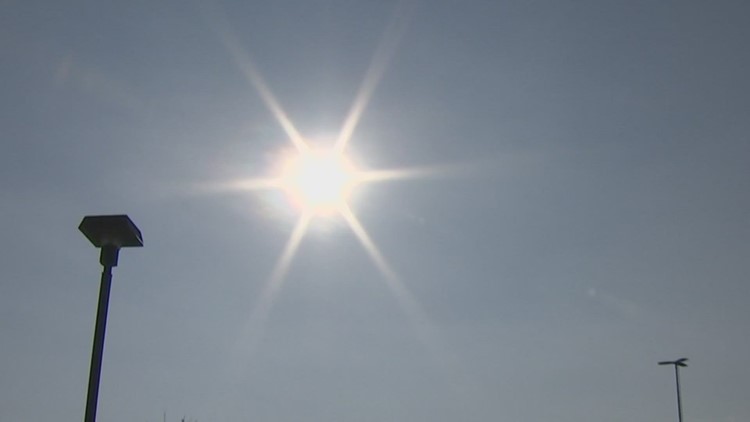PHOENIX — Researchers are beginning to better understand the possible effects constant exposure to extreme heat has on a person's mental health.
In the last few years, studies published in various journals have highlighted how suicide rates tend to rise when there's an increase in the monthly average temperature. Another study found that days of extreme heat were associated with higher rates of mental health–related hospital visits.
And if the summer seasons get any hotter, then researchers fear that adverse mental health outcomes will become a bigger problem.
The research could have serious implications in a city like Phoenix, which was subjected to a record-breaking heat wave last summer and regularly reports heat-related deaths as the temperature starts to escalate.
Arizona's public health data shows that the state's number of suicide-related events reported in 2023 experienced a peak in July, when Phoenix had an average daily temperature of 102.7 F.
Dr. Pope Moseley, an intensive care physician and professor at Arizona State University's College of Health Solutions, said chronic heat exposure can disrupt signals sent to the brain, resulting in a change to someone's mental health.
"That's why you see people with dementia, anxiety, depression hospitalized during heat waves," Moseley told 12News in an interview earlier this summer.
Individuals who are already taking psychotropic medications are especially at risk during an intense heat wave because the drugs can impair a person's ability to handle heat, according to the American Psychological Association.
Medical providers in the Valley are attempting to do everything possible to ensure residents have the resources they need during the summer months.
Banner Behavioral Health Hospital in Scottsdale has recently seen a 14% increase in admissions to the hospital compared to the month prior, though the hospital's data doesn't show whether or not these admissions are related to heat and mental health.
Alexzis Figueroa, Banner Health's director of behavior health services, said locals should be checking in with their medical providers to know how side effects from their medications could be affected by hotter weather.
It's important for residents to have support systems in place, Figueroa added, and to make adjustments to their daily routines or habits to ensure they stay out of the heat.
More information on obtaining behavioral health services can be found here.



